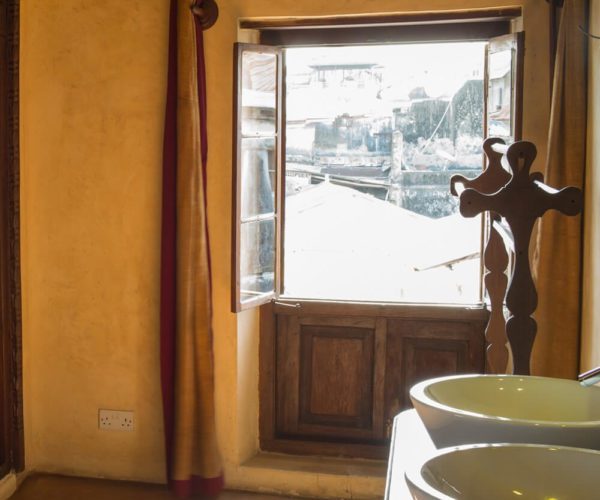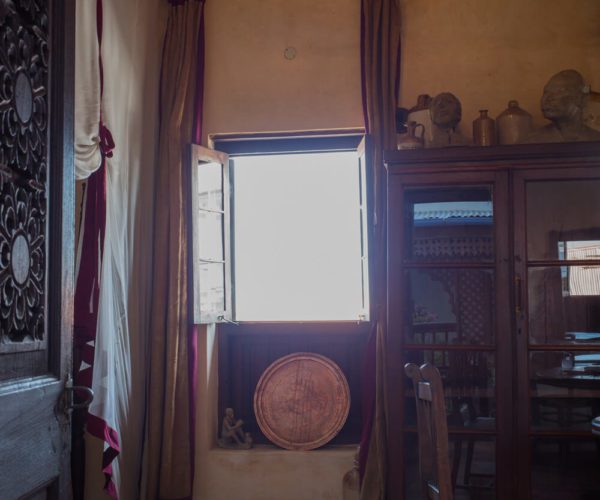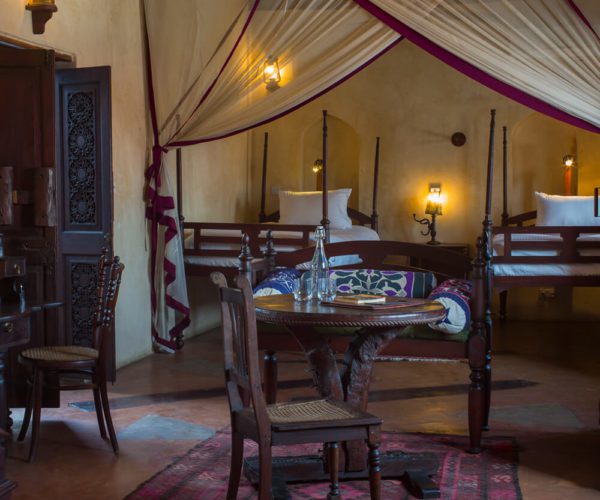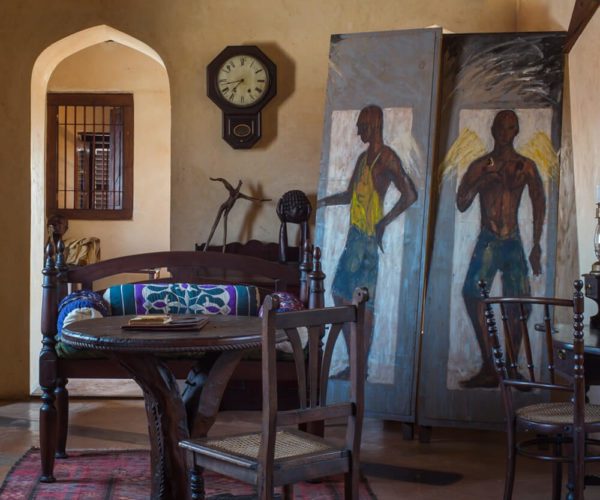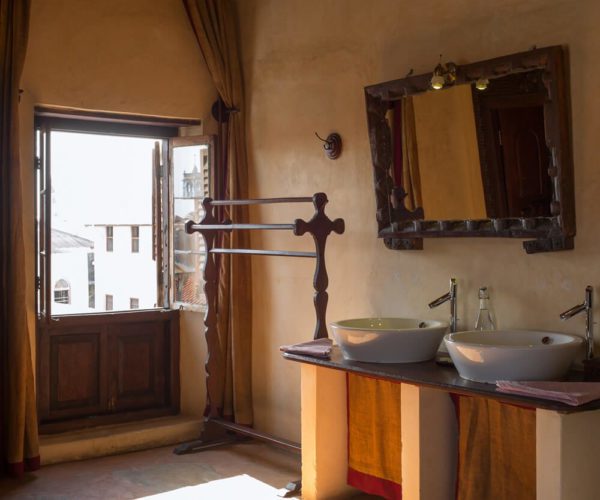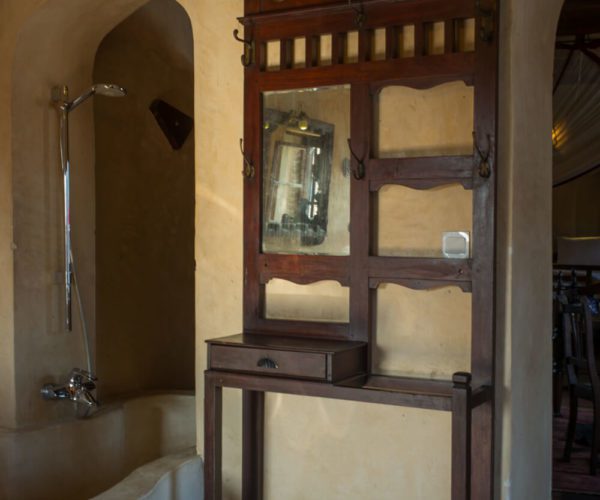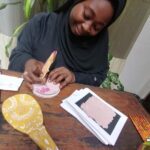MIMI
Emerson Spice Hotel Rooms all have a fabulously unique story;
Mimi’s friends are artists and intellectuals; she, a seamstress. She has no space, yet she is omnipresent; she’s a frail waif, a bewintered sparrow dependent on her feminine wiles and the crumbs of friends and lovers, which, for her, means perching in male nests. Likewise, Mimi is an anomalous room for this hotel. Graced by arches, frilly balconies, and curved stained glass windows, every other space gushes feminine, while this room Mimi smacks of a boy’s space from the instant entered.
No curved stained glass windows, only two arches and no balcony, frilled or unfrilled. When you cross the threshold, you sense it is lofty (sorry), and you are immediately confronted by an alpha male space, circa 1900 Zanzibari colonial, shortly after the opera was premiered. The view is of Zanzibari characteristic roof tops, minarets, and church spires. The furniture is of the period, even some chairs of what I call “proto-IKEA,” made pre-fab, pre-WWI by a Norwegian company and traded one chair, one measure of cloves.
We are filling this room with its own art collection. We have the honor to present two life-size angels standing on easels from a now renowned exhibition called “Letters to Abu” by Jan Van Esch, a Dutch-Tanzanian artist. Elias Ciprian Mkumbo, a leading young Tanzanian sculptor, has graced us with two busts of Mimi, one of clay and one of wood.

